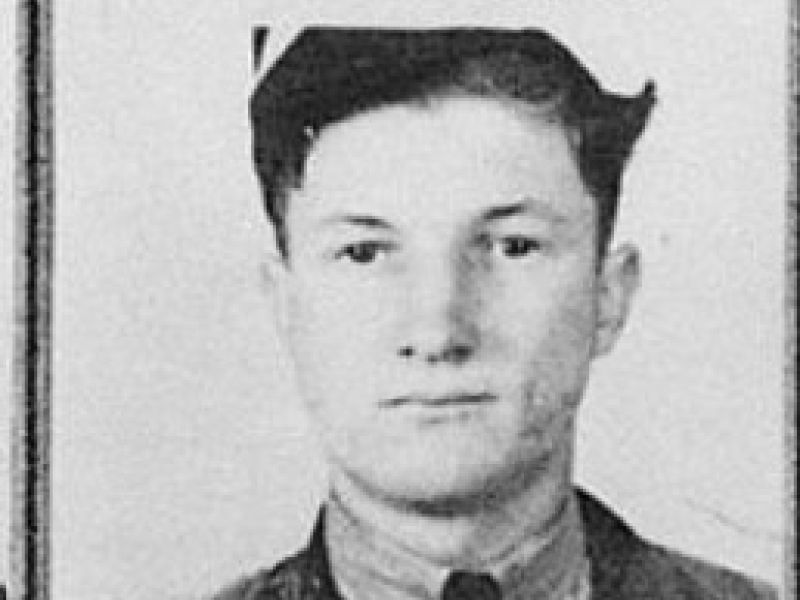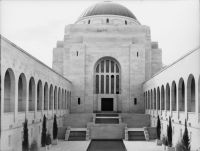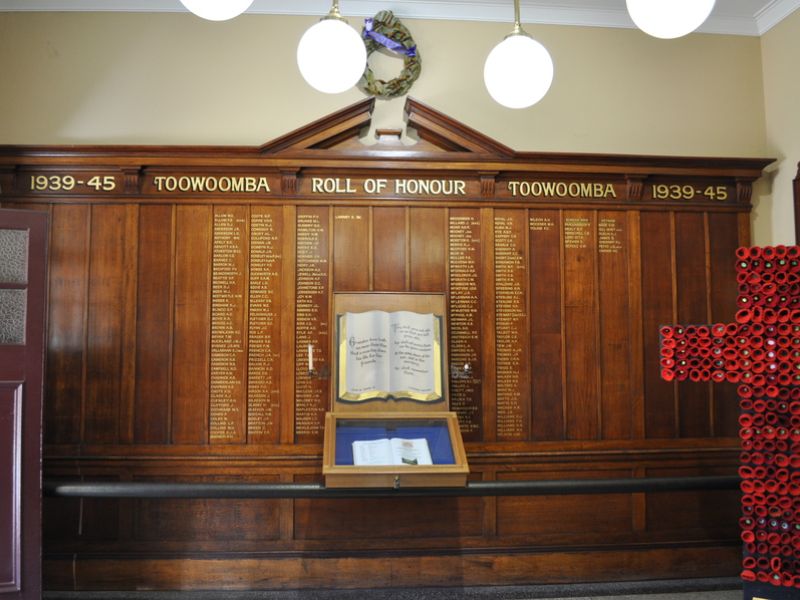Flight Sergeant Allen Stewart Jackson, No. 115 Squadron (RAF)
Allen Jackson was born in Toowoomba, Queensland, the son of John and Olive Jackson.
He grew up in Toowoomba, where he attended North State School and then technical college. He was a promising amateur boxer, winning several trophies.
Allen went on to work at Forsythe and Thompson Joinery Works, before being employed by Queensland Railway as a junior station porter.
Allen’s father, known as “Joe”, enlisted early during the Second World War, serving with the 2/18th Battalion in the Middle East.
Despite being under age, Allen decided to enlisted in the Royal Australian Air Force. After passing a proficiency examination in November 1942, he signed up on 29 January 1943.
After initial training, elementary flight school, and special flight training school, Allen Jackson specialised as an air gunner, attending bomber and gunnery school at Evans Head in New South Wales before being awarded his flying badge on 14 October 1943.
He embarked at Melbourne on 17 November 1943, bound for the United Kingdom.
As part of the Empire Air Training Scheme, Jackson was one of almost 27,500 RAAF pilots, navigators, wireless operators, gunners, and engineers who, throughout the course of the war, joined Royal Air Force squadrons or Australian squadrons based in Britain.
In the United Kingdom, Jackson joined No. 18 Operational Training Unit. This unit had been formed from a Polish Training Unit as part of Bomber Command, training crews to operate Vickers Wellington aircraft.
In June 1944, Jackson joined No. 115 Squadron (Royal Air Force), which undertook bombing raids on targets in Germany and Italy, as well as mine laying in French ports and the Bay of Biscay.
On 27 August 1944, Jackson was the rear gunner in Lancaster HK 556, which took off from Cambridgeshire as part of a mission targeting Kiel, a port city on Germany’s Baltic Sea coast.
Nothing further was heard from the aircraft, which never returned to base. All seven crewmembers were presumed to have been killed.
Today, Allen Stewart Jackson’s name appears on the Runnymede Memorial on the banks of the Thames, which commemorates over 20,000 men and women from the air forces of the British Empire who were lost in operations during the Second World War and have no known grave.
- AWM Roll of Honour https://www.awm.gov.au/collection/R1720167

 Australian War Memorial
Australian War Memorial